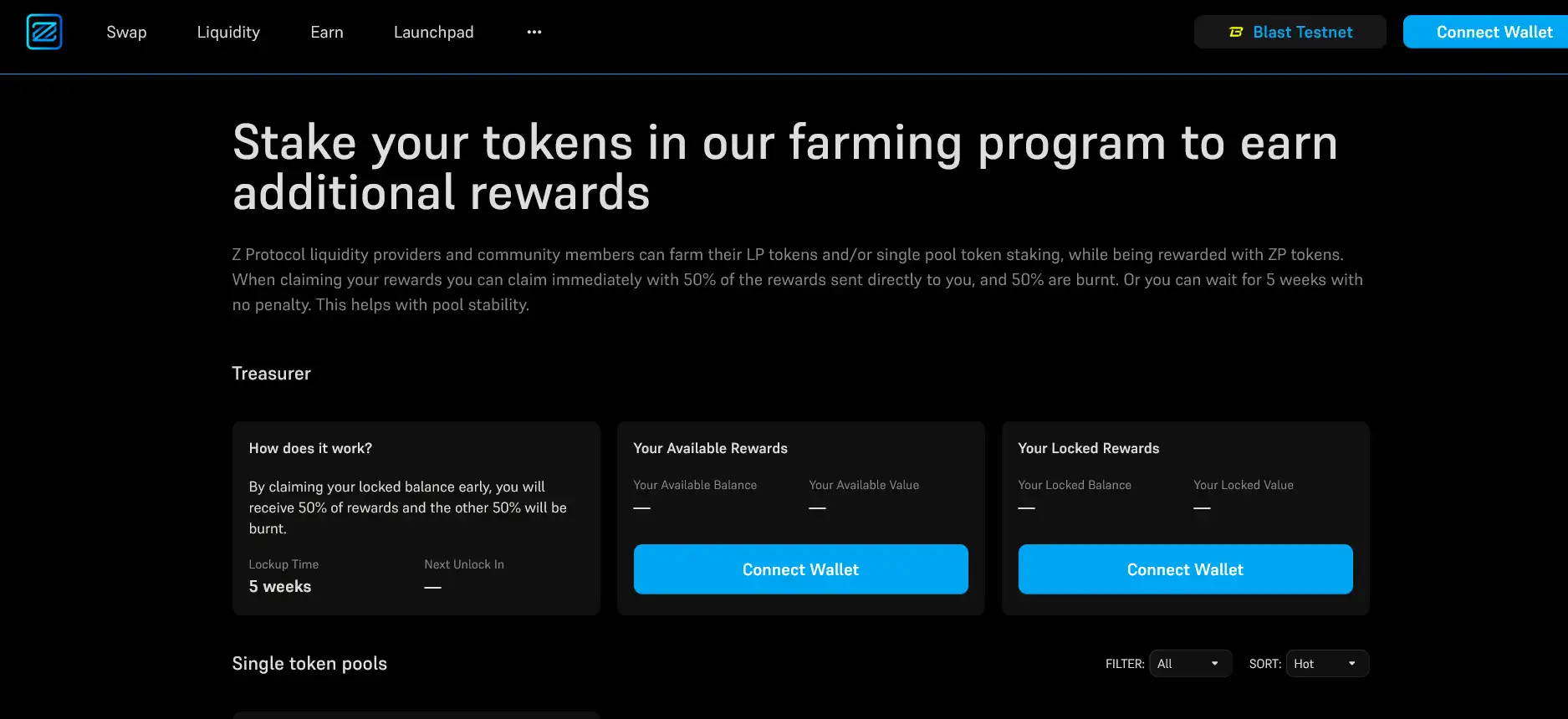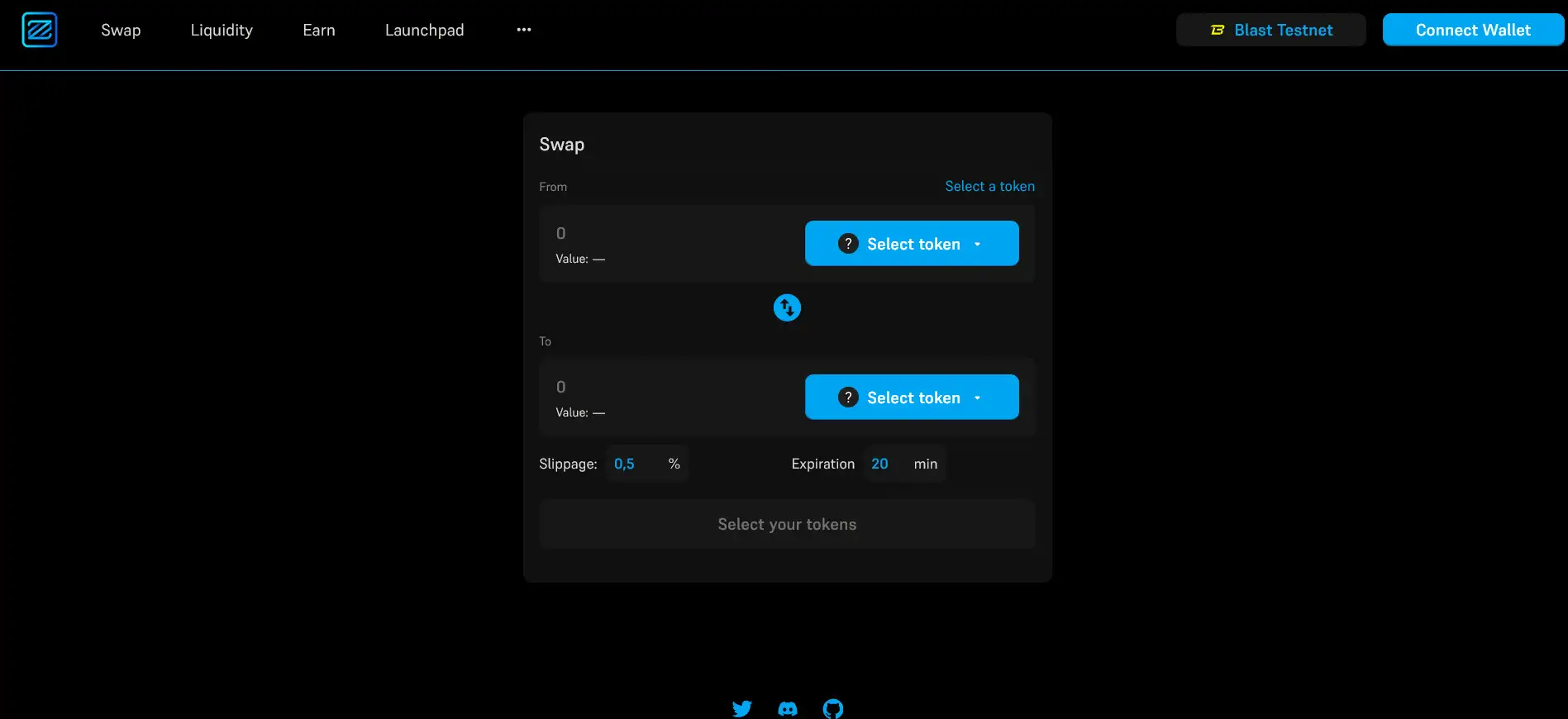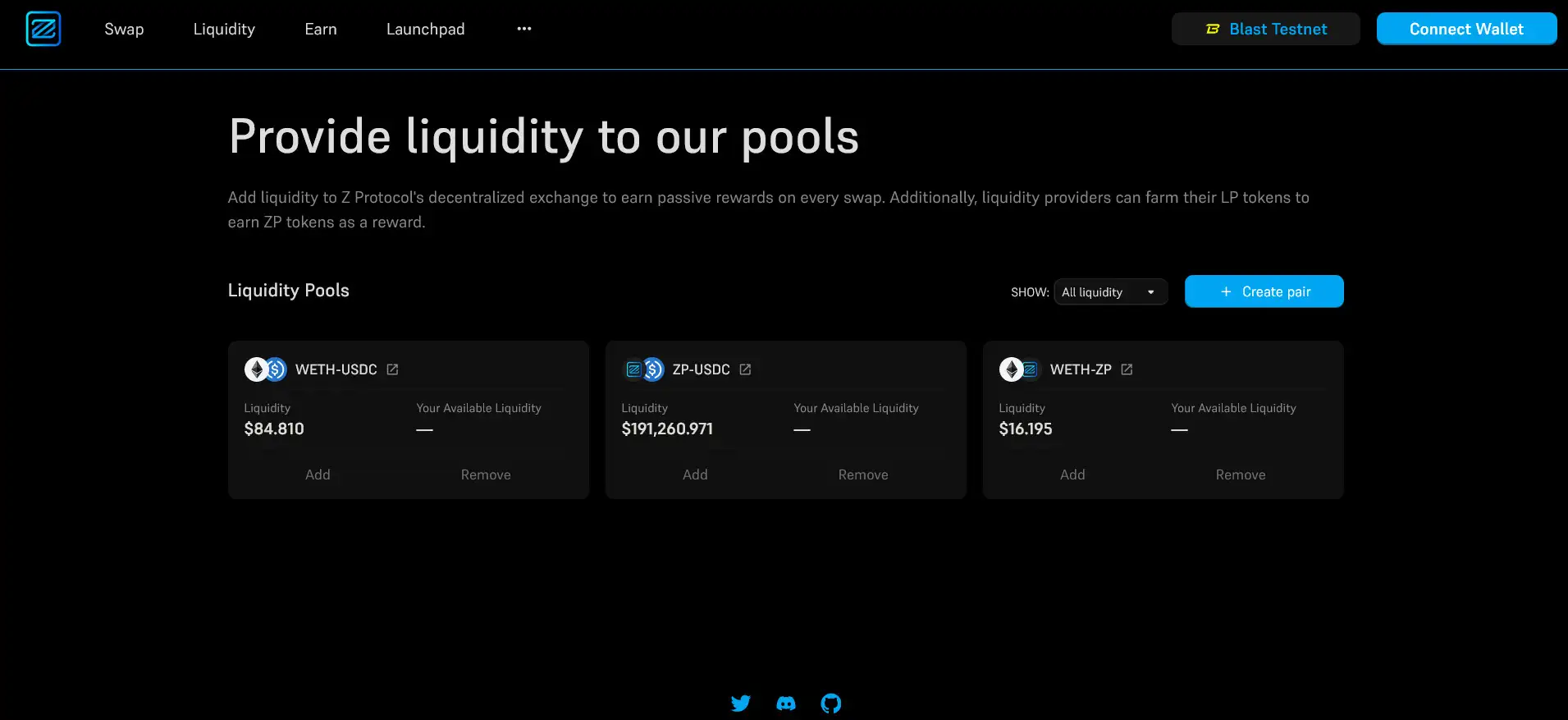About Z PROTOCOL
Z Protocol is a cutting-edge decentralized finance (DeFi) platform that seeks to revolutionize the financial ecosystem by offering a suite of innovative tools and services designed to empower users. At its core, Z Protocol is built on the principles of decentralization, transparency, and community governance. The platform’s primary mission is to create an accessible and user-friendly DeFi environment where individuals and institutions alike can participate in a wide range of financial activities without the need for traditional intermediaries.
The platform is designed to cater to the needs of various users, from seasoned DeFi enthusiasts to those new to the space. Z Protocol offers a robust set of features, including staking, liquidity provision, and yield farming, all of which are powered by the ZP token. The platform's architecture is highly scalable, allowing it to grow alongside the rapidly expanding DeFi sector while maintaining security and user accessibility.
Z Protocol is a cutting-edge decentralized finance (DeFi) platform that aims to reshape the financial landscape by offering a wide range of innovative tools and services. Founded on the principles of decentralization, transparency, and community governance, Z Protocol is designed to empower users by providing them with complete control over their financial activities. The platform’s mission is to create a DeFi ecosystem that is accessible, secure, and user-friendly, catering to both individual users and institutional participants.
Z Protocol offers a robust set of features, including staking, liquidity provision, and yield farming. These features are powered by the native ZP token, which plays a crucial role in the platform’s operations. The ZP token is used for governance, allowing holders to vote on key decisions that shape the future of the platform, and for staking, where users can earn rewards by locking up their assets. The platform's architecture is highly scalable, enabling it to grow alongside the rapidly expanding DeFi sector while maintaining security and ease of use.
Since its launch, Z Protocol has achieved several milestones, including the deployment of its smart contracts, the growth of a vibrant community of ZP holders, and the introduction of innovative DeFi features that enhance user engagement. The platform is continually evolving, with ongoing development focused on expanding its range of services and integrating with other blockchains to create a more interconnected DeFi ecosystem. This focus on continuous improvement and user-centric development positions Z Protocol as a leading platform in the competitive DeFi landscape.
In comparison with other major DeFi platforms such as Aave, Compound, and Uniswap, Z Protocol differentiates itself through its strong emphasis on community governance and its commitment to creating an ecosystem that is both accessible and user-friendly. This approach ensures that Z Protocol not only meets the needs of its current users but also remains flexible and adaptable as the DeFi landscape continues to evolve.
Z Protocol offers several key benefits and features that set it apart from other DeFi platforms. These include:
- Decentralized Governance: Z Protocol empowers its community by allowing ZP token holders to vote on important decisions, ensuring that the platform evolves in a way that aligns with the interests of its users.
- Staking Rewards: Users can stake their ZP tokens to earn rewards, incentivizing long-term participation and engagement within the ecosystem.
- Liquidity Incentives: The platform provides incentives for users who contribute liquidity, helping to maintain a healthy and liquid market for ZP and other supported assets.
- Security and Transparency: Z Protocol's smart contracts are designed with security in mind, and the platform operates with full transparency, giving users confidence in the safety of their assets.
- Scalability: The platform is built to scale, ensuring that it can handle increasing demand as more users and assets join the ecosystem.
Getting started with Z Protocol is straightforward:
- Create an Account: Visit the Z Protocol website and sign up for an account.
- Acquire ZP Tokens: Purchase ZP tokens through supported exchanges or within the platform’s interface.
- Staking and Participation: Once you have ZP tokens, you can start staking them to earn rewards. You can also participate in governance by voting on proposals.
- Explore the Platform: Take advantage of the various features offered by Z Protocol, including staking, liquidity provision, and yield farming.
Z PROTOCOL Token
Z PROTOCOL Reviews by Real Users
Z PROTOCOL FAQ
Z Protocol is a decentralized finance (DeFi) platform designed to empower users through community-driven governance, staking, and liquidity provision. It offers a secure, transparent, and scalable ecosystem for various financial activities.
The ZP token is the native utility and governance token of Z Protocol. It’s used for voting on governance proposals, staking to earn rewards, and participating in the protocol’s decentralized finance activities.
You can earn rewards by staking your ZP tokens within the Z Protocol. Staking helps secure the network, and in return, you earn additional ZP tokens as rewards.
Yes, Z Protocol allows users to provide liquidity by depositing assets into liquidity pools. In return, liquidity providers earn fees and rewards, enhancing the platform's overall liquidity.
Z Protocol plans to expand its DeFi offerings by integrating cross-chain functionalities and introducing new financial products, all while continuing to focus on decentralization and community governance.
You Might Also Like













